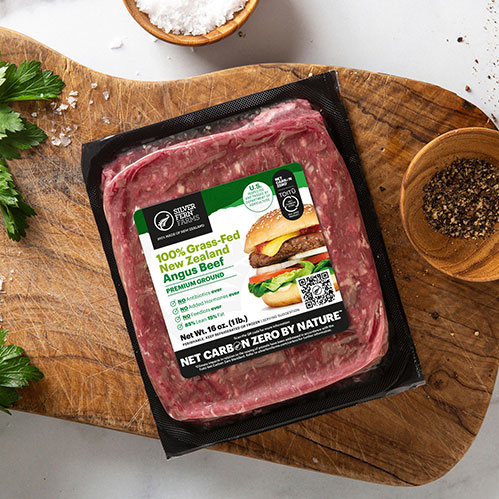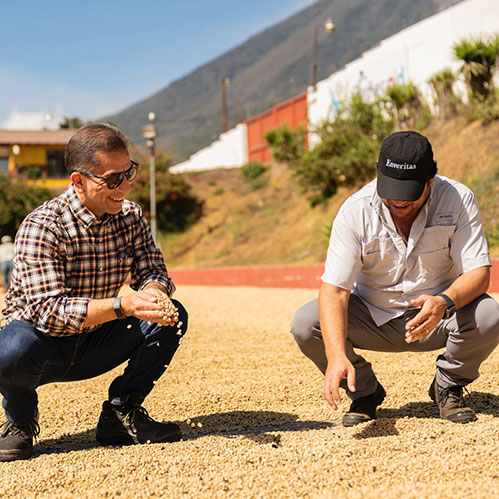Goodsam Foods Wins Chocolate Product of the Year in the 2022 Mindful Awards
Healthy snack brand’s candy coated peanuts recognized as conscious and delicious winner in the Chocolate Category
GoodSAM Foods, a healthy snack food brand with a commitment to sustainability and regenerative agriculture, was named Chocolate Product of the Year in the 2022 Mindful Awards. The awards, highlighting conscious companies and products that mindfully make waves in the ever-expanding world of consumer packaged goods, recognized GoodSAM’s Candy Coated Peanuts as the top product.
Selected as winner over nearly 2,000 other chocolate snacks GoodSAM’s winning Candy Coated Peanuts are a Keto chocolate candy-coated candies, sweetened with alluose. Organic peanuts covered in organic chocolate from Northern Colombia and using a rare sugar, allulose and isomalt combine regenerative farm practices with a passion for snacking. The Candy Coated Peanuts have no added sugar, are non-GMO, vegan, gluten-free, Keto-friendly, and are directly traded (eliminating middlemen and giving farmers a higher wage) making them good for consumers, good for farmers, and good for the planet.
www.goodsamfoods.com
www.mindfulawards.com
Silver Fern Farms, Jewel-Osco Introduce Net Carbon Zero Beef
New Zealand meat producer and exporter launched USDA-approved Net Carbon Zero by Nature 100% Grass-Fed Angus Beef in 134 Jewel-Osco supermarkets
With exports to 60 countries and now supplying the US market with its Grass-Fed product for four decades, Silver Fern Farms' Net Carbon Zero by Nature product is a further step along its journey towards becoming a nature positive food brand.
Silver Fern Farms' unique approach to managing the emissions harnesses the biodiversity on New Zealand farms that offers significant capacity to sequester carbon.

Silver Fern Farms Net Carbon Zero By Nature Ground Beef
The company uses "insetting" which means the carbon credits needed to offset the emissions of the product are found by working with farmers. By optimizing the role that the farms, where the animals are raised, can play in acting as carbon sinks, Silver Fern Farms sources carbon credits from its own supply chain rather than having to rely on purchasing carbon credits from other projects.
How to Transform the Food System
Kellogg Company executive shares three strategies to overcome the current challenges
By Dr. Nigel Hughes, svp of global R&D and innovation, The Kellogg Company
1. Build on the foundations and heritage of the original food system.
Changing consumer preferences, eating behaviors and the importance of ESG (Environmental, Social and Governance) have ignited a paradigm shift from food as a commodity to food as a celebration, a language, and even a personal ethos.
2. Develop collective solutions.
New farming techniques, low-carbon foods, and technological advancements have the potential to create a more efficient and sustainable food system. To transform our food system and its impact on climate, we must bring farmers, suppliers, consumers, policymakers and NGOs to the table and create a shared vision with a shared responsibility to benefit all.
3. Accelerate the circular food system.
The current food system has supported a fast-growing population and rapid economic development. However, these gains have come at an unstainable cost, and the time is now for a significant rethink. We must move from a linear approach to a circular one that prioritizes regenerative production, reduces resource inputs and aims to ensure recovery for future uses and minimize wastage.
Peet's Coffee Achieves 100% Responsibly Sourced Coffee Across 24 Regions
As climate change threatens coffee production, Peet's calls for collaborative industry approach to help independent farmers tackle environmental, social and economic challenges
Peet's Coffee announced that 100% of its purchases are Responsibly Sourced per Enveritas standards. Enveritas, an independent third-party global non-profit, tracks social, economic and agricultural impact across multiple crops and industries. The verification process relies upon comprehensive farm audits conducted by regional specialists trained in coffee production to help identify a variety of risks including deforestation, child labor and other damaging social and environmental conditions. It also holds Peet's responsible for supporting its coffee-growing communities through community impact investments. As research cites coffee as a crop significantly threatened by climate change, Enveritas's data-based system measures conditions at the point of origin to identify farmers and communities most in need of agronomic and other assistance, and tracks progress of impact projects to ensure community support is effective.

Enveritas inspecting drying green coffee on a farm in Guatemala. Peet's Coffee confirms that 100% of coffee purchases are Responsibly Sourced per Enveritas standards.
In 2016 Peet's Coffee began working with Enveritas because the non-profit offers a different way of addressing sustainability - an approach where producers access free verification of their practices, while encouraging a deeper understanding and commitment to solving the most challenging sustainability issues in their local community.
Working collaboratively, Peet's and Enveritas designed a custom coffee-specific verification program that uses, among other techniques, artificial intelligence (AI) and geo-spatial technology to gather independent, data-rich reports of conditions on coffee farms. These conditions are verified against 30 sustainability standards set by Enveritas, which has performed more than 20,000 annual audits across Peet's coffee supply chain.
